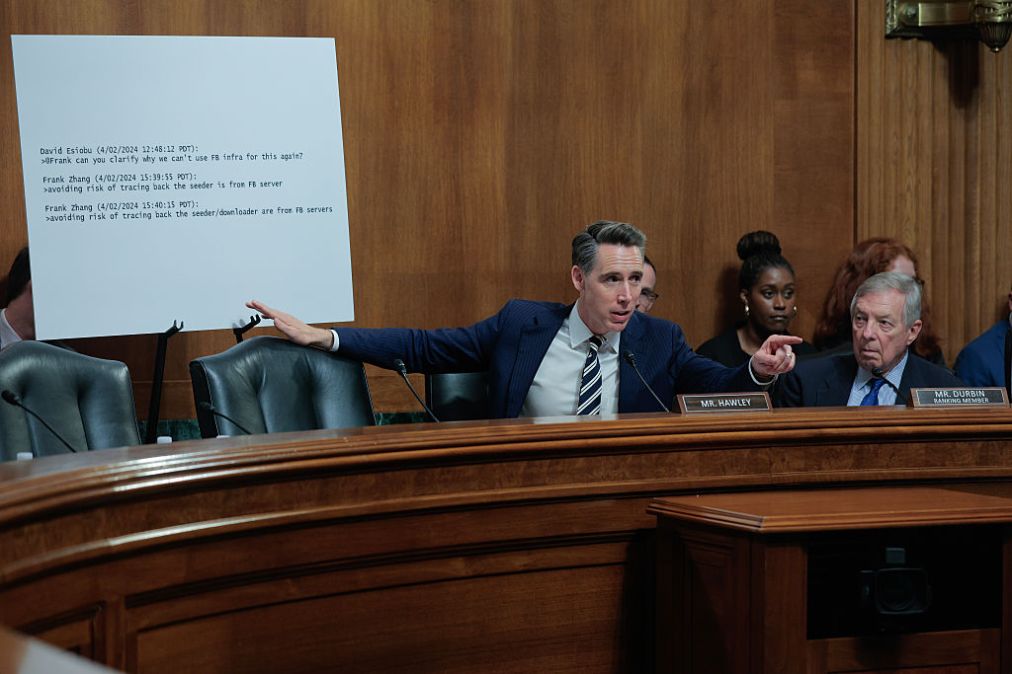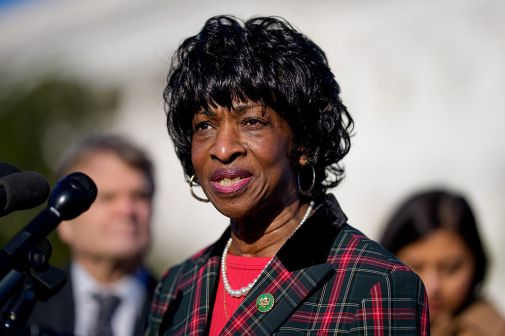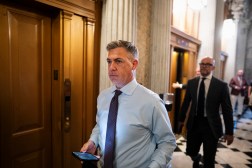Bipartisan Senate bill calls for agencies to report AI-related job cuts

Federal agencies would be required to report artificial intelligence-related layoffs to the Department of Labor under a new bill from a bipartisan pair of senators.
The AI-Related Job Impacts Clarity Act from Sens. Mark Warner, D-Va., and Josh Hawley, R-Mo., calls on agencies and major companies to deliver quarterly reports to DOL on the impact AI has on their workforces, detailing job cuts and displacements.
“Artificial intelligence is already replacing American workers, and experts project AI could drive unemployment up to 10-20% in the next five years,” Hawley said in a press release. “The American people need to have an accurate understanding of how AI is affecting our workforce, so we can ensure that AI works for the people, not the other way around.”
The bill would also require agencies and companies to report hirings that can be “substantially” credited to AI, as well as the number of individuals they are retraining because of AI. There’s also a callout to keep track of open positions an agency or company decided not to fill because of automation.
“Good policy starts with good data. This bipartisan legislation will finally give us a clear picture of AI’s impact on the workforce — what jobs are being eliminated, which workers are being retrained, and where new opportunities are emerging,” Warner said in a press release. “Armed with this information, we can make sure AI drives opportunity instead of leaving workers behind.”
The Labor secretary will have some leeway on how to approach parts of the data collection called for in the legislation. Per the bill text, they could either revise an existing survey or team up with the Census Bureau on a survey that would incorporate various AI hiring and firing disclosures.
The quarterly DOL reports would be prepared in consultation with the Office of Management and Budget and the Office of Personnel Management, summarizing those aforementioned disclosures and publishing the findings on the Bureau of Labor Statistics website.
Some agencies would also have a role to play in the data work required of non-publicly traded companies. The heads of the Treasury Department and the Securities and Exchange Commission, for example, would consult with the Labor secretary on potential reporting regulations that private firms may be subject to under the bill.
The introduction of Warner and Hawley’s bill — which was first reported by Axios — comes at a time when companies are gutting their workforces to make way for supposed AI efficiencies. At the agency level, the Trump administration has often defended its drastic downsizing of the federal workforce by touting AI’s ability to perform that work.
Early reactions to the bill from nonprofits and industry groups were positive. Brendan Steinhauser, CEO of the Alliance for Secure AI, said in a statement that the legislation represented “a good first step” to brace for the looming AI jobs crisis.
“The so-called ‘white-collar bloodbath’ will be here before we know it. Mass layoffs can potentially lead to social and political unrest. I do not think that’s the future we want,” Steinhauser said. “We can create a path forward so that every American student, worker, parent, and child can find purpose and pursue the American Dream on their own terms — not the terms that AI creates for them.”
Americans for Responsible Innovation led a letter in September to Labor Secretary Lori Chavez-DeRemer asking the agency to prioritize data collection linked to AI and the workforce. ARI Executive Director Eric Gastfriend said in a statement that the Warner-Hawley bill “gets at a very real problem.”
“If we don’t know where jobs are being lost and what new opportunities AI is creating, then we can’t train American workers for the jobs of the future,” he said. “To develop smart, targeted solutions addressing workforce displacement, we need good data and a clear understanding of the economy’s direction. This is one of several ideas now emerging to help policymakers get a clearer picture of the AI economy.”
This story was updated Nov. 5, 2025, with comments from the Alliance for Secure AI and ARI.






